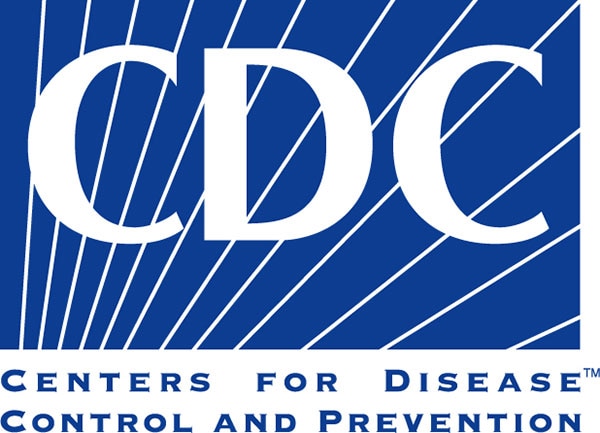Cognitive symptoms, commonly referred to as brain fog, are among the most common persistent or new symptoms after COVID-19 in both people who have been hospitalized and those who have not. Brain fog may include deficits in spatial planning, working memory and executive functioning, difficulty with word retrieval and fluency, and poor attention. These symptoms, along with others that begin, persist, or recur after the initial illness with COVID-19, are called post-COVID conditions (or long COVID).
Cognitive symptoms are also often reported by patients with myalgic encephalomyelitis/chronic fatigue syndrome (ME/CFS). Successful management tools used to treat ME/CFS can also be effective in treating long COVID. Any prescribed pharmaceutical or nonpharmaceutical intervention to treat long COVID should be done on a case-by-case basis while considering all individual patient factors, such as other comorbid conditions, current pharmaceutical regimens, and sociodemographic factors.
Here are five things to know about using ME/CFS symptom management tools to help with brain fog in long COVID:
1. Cognitive symptoms, commonly referred to as brain fog, occur in people who had COVID-19, no matter how severe their infection was.
In a systematic review of 81 studies, about one fifth of the individuals exhibited cognitive impairment for 12 or more weeks after their COVID-19 diagnosis. This result was similar for both hospitalized and nonhospitalized populations.[1] This study also noted that for some susceptible individuals, fatigue and cognitive impairment appeared to persist or become even worsen over time compared with their other persistent symptoms after COVID-19.[1] In one prospective multicenter longitudinal cohort study of 81 COVID-19 survivors, 25% reported cognitive symptoms after being followed for 1 year.[2] Using a standardized battery of tests that showed objective cognitive deficits, this study found that 18% of participants had exhibited cognitive deficits at 1 year. The findings of these studies demonstrate that cognitive symptoms are common, persistent, and a real issue for many individuals experiencing long COVID.
2. Use validated tools and instruments to appropriately screen all patients who report cognitive symptoms after COVID-19.
The American Academy of Physical Medicine and Rehabilitation (AAPM&R) consensus guidance statement on the assessment and treatment of cognitive symptoms with post-acute sequelae of SARS-CoV-2 infection (PASC) was recently published and serves as a resource for clinicians who are managing patients with long COVID.[3] The guide focuses on the most prominent symptoms after COVID-19. Clinicians can use this resource for practical guidance when assessing and treating patients presenting with long COVID. Standardized general cognitive assessments form the foundation for the initial cognitive assessment; however, clinicians should recognize that tests might not always detect abnormalities, and normal cognitive screening does not necessarily mean the patient is not experiencing impairment.[3] It is also important to evaluate for and treat other medical conditions that might be contributing to cognitive symptoms. Examples of validated tools and instruments include the following, some of which are accessible through the internet:
Montreal Cognitive Assessment (MoCA)
Mini-Mental State Examination (MMSE)
Mini-Cog
Short Test of Mental Status
3. Current practices to treat ME/CFS can help guide treatment recommendations for long COVID–related cognitive symptoms.
Patients with long COVID may have the same symptoms as patients with ME/CFS, including cognitive impairment.[4] Clinicians can draw from the symptom management approaches used in ME/CFS to help inform their prescribed treatment plan for patients experiencing cognitive symptoms with long COVID. Clinicians may consider using a symptom-management approach called activity management, which has been shown to be helpful for people with ME/CFS. Also known as pacing, this activity management approach enables a patient to find their individual limits for physical and mental activity to mitigate symptom flare-ups.[5] Other methods to assist with cognitive symptoms may include using memory aids, like organizers and calendars, to help individuals experiencing memory problems.[5]
4. Using an individualized patient-centered approach when choosing the appropriate treatment will help meet the patient's needs.
It is important to remember that each patient experiencing long COVID is unique, and their prescribed treatment plan should reflect this. Clinicians should recognize that individual patients' symptom timelines will vary widely, and the duration of long COVID–related cognitive symptoms should not necessarily dictate the management approach. A patient's individual symptom and clinical presentation, preexisting and COVID-19–exacerbated comorbidities, as well as changes in function and quality of life should guide an identification and intervention approach.[3] Clinicians are encouraged to practice transparency and work closely with patients to set achievable goals for disease management in individuals with long COVID. Treatment plans should focus on improving the patient's quality of life.[4] Consider the barriers to healthcare when prescribing a treatment plan. This could include a patient's economic stability, literacy, social stressors, and access to quality care and supportive resources. Ensure that treatment resources are equitable and tailored to fit the individual, especially for those from marginalized communities.[3]
5. Carefully consider the risks and benefits when prescribing or recommending pharmaceutical interventions to treat long COVID–related cognitive symptoms.
Though some US Food and Drug Administration–approved supplements or vitamins have been used to alleviate long-COVID symptoms by supporting the immune system and reducing inflammation, there is limited evidence to support their effectiveness.[3,4] Any pharmaceutical recommendation should only be made after careful consideration of individual factors affecting the patient. For individuals with ME/CFS experiencing concentration problems, some clinicians have prescribed stimulant medications, like those typically used to treat attention-deficit/hyperactivity disorder.[4] However, use caution when prescribing stimulants for cognitive symptoms. In people with ME/CFS, stimulants might help improve concentration but may also lead to the push-and-crash cycle and worsen symptoms. Push-and-crash cycles are characterized as a patient experiencing a reduction of symptoms and then pushing to do more than they typically do, which then leads to a crash (do too much, crash, rest, start to feel a little better, do too much once again).[5] Because this experience is also commonly reported by people with long COVID, it is recommended to guide your patient to set and understand their limits in order to prevent falling into this cycle.
Resources:
Multi-Disciplinary Collaborative Consensus Guidance Statement
CDC: Myalgic Encephalomyelitis/Chronic Fatigue Syndrome (ME/CFS)
CDC: Long COVID or Post-COVID Conditions
CDC: Post-COVID Conditions: Information for Healthcare Providers
Follow the CDC on Twitter
Follow Medscape on Facebook, Twitter, Instagram, and YouTube
Credits:
Lead image: iStock/Getty Images
Public Information from the CDC and Medscape
Cite this: Treating Long-COVID Brain Fog With ME/CFS Guidelines - Medscape - Mar 27, 2023.






